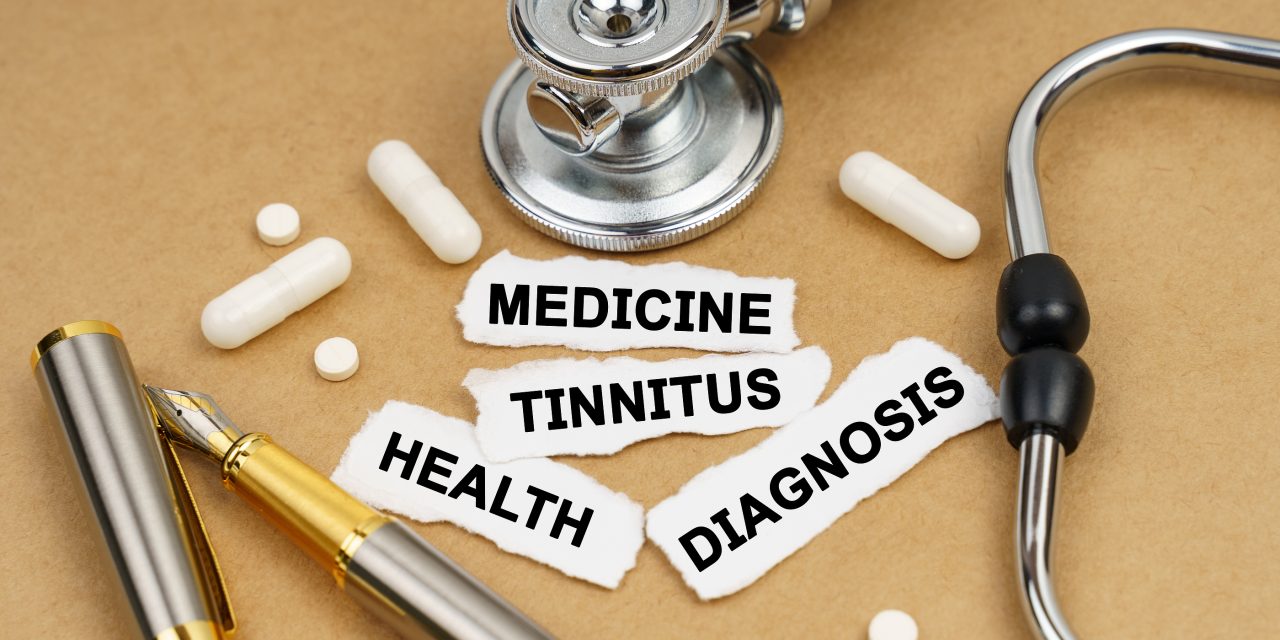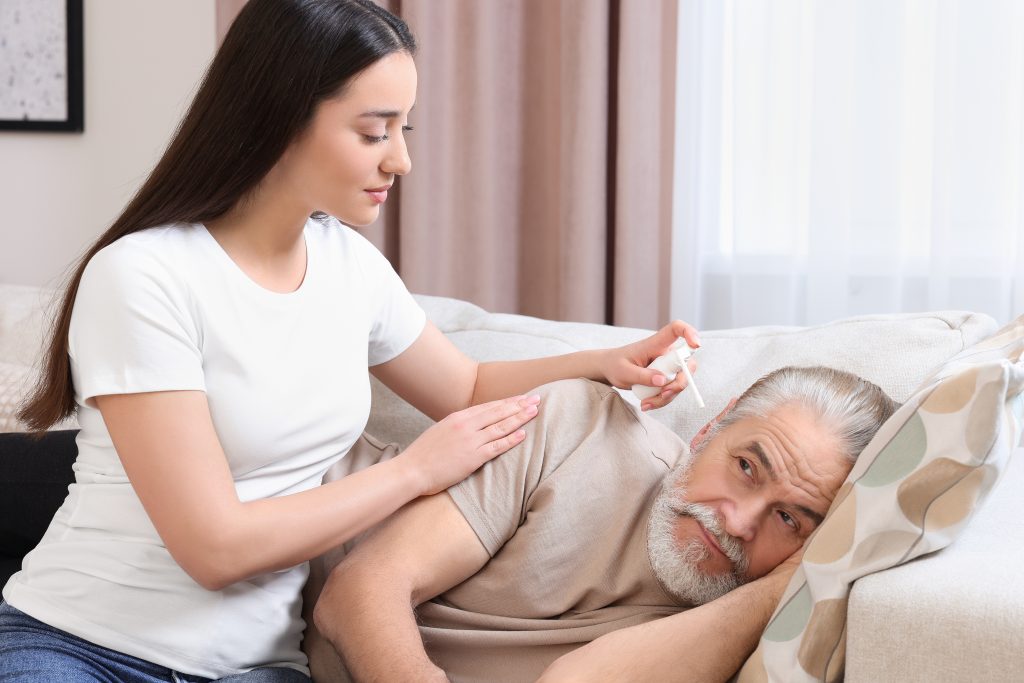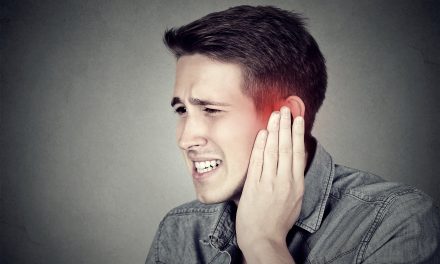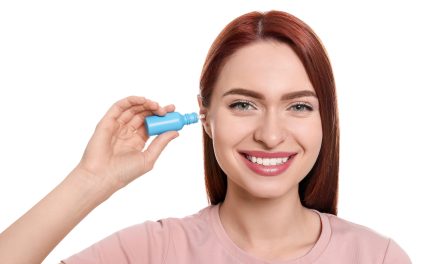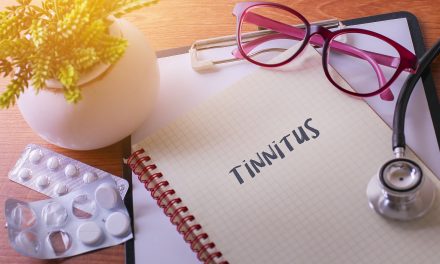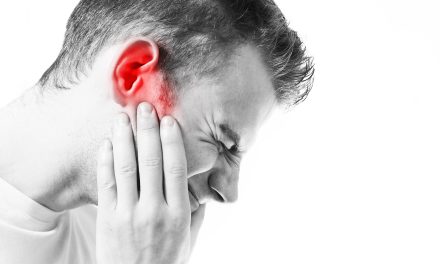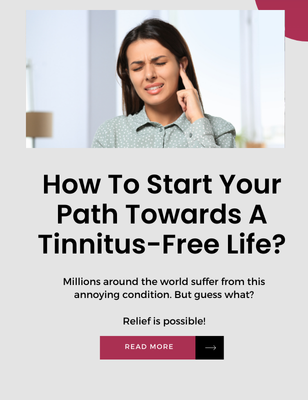Tinnitus, the perception of noise or ringing in the ears, is a common condition affecting millions worldwide. While it is often characterized as ringing, it can also manifest as buzzing, hissing, whistling, swooshing, or clicking. The sound may vary in pitch and can be heard in one or both ears. In some cases, the noise can be so loud it interferes with the ability to concentrate or hear external sounds. Tinnitus itself is not a disease but rather a symptom of underlying conditions such as age-related hearing loss, ear injury, or a circulatory system disorder.
Finding the fastest way to cure tinnitus depends on accurately identifying the underlying cause. Although there is no one-size-fits-all remedy, various treatment options can reduce symptoms or even eliminate this hearing disturbance. Treatments range from medical interventions and surgical options to lifestyle modifications and natural therapies. Advances in technology have also brought forth innovative solutions that provide relief for many suffering from tinnitus. Managing it effectively calls for a comprehensive approach that combines medical advice with self-care strategies.
Key Takeaways
- Tinnitus is often a symptom of another condition and manifests as a persistent noise in the ears.
- Treatment options vary from medical and surgical interventions to lifestyle changes and technological aids.
- Effective tinnitus management requires a personalized approach combining professional healthcare with self-care techniques.
Understanding Tinnitus
Tinnitus is an auditory condition characterized by the perception of noise or ringing in the ears without an external sound source. It can significantly impact one’s quality of life, necessitating a comprehensive understanding of its causes, symptoms, and types.
Causes of Tinnitus
Tinnitus can result from various factors, with noise-induced hearing loss being a common cause. Other potential causes include:
- Age-related hearing loss
- Ear infections or wax build-up
- Cardiovascular diseases
- Ototoxic medications
Symptoms and Diagnosis
Individuals with tinnitus may experience:
- Persistent ringing, hissing, or whistling sounds
- Trouble focusing or sleeping due to the noise
Diagnosis typically involves:
- A thorough medical history and examination
- Hearing tests (audiological evaluation)
Types of Tinnitus
Tinnitus is classified into two primary types:
- Subjective Tinnitus:
- Only heard by the affected individual
- Most common form
- Objective Tinnitus:
- Sound can be heard by others, such as a doctor during an examination
- Rare and often caused by vascular or muscular issues
Medical Treatments
Effective management of tinnitus may involve a combination of medical treatments. It’s crucial to consult with a healthcare professional for a tailored approach.
Medication Options
Currently, no single medication is approved by the FDA to specifically treat tinnitus. However, some drugs are used off-label to alleviate symptoms. These include antidepressants such as amitriptyline and nortriptyline, as well as antianxiety medications like alprazolam. The effectiveness of these medications can vary and they may have side effects.
Hearing Aids and Sound Therapy
For individuals with hearing loss, hearing aids can be beneficial in reducing tinnitus symptoms. They enhance ambient sounds, making the tinnitus less noticeable. Sound therapy works by using external noise to alter a patient’s perception of, or reaction to, tinnitus. Masking devices resembling hearing aids deliver continuous white noise to the wearer.
Cognitive Behavioral Therapy
Cognitive Behavioral Therapy (CBT) is a type of talk therapy that helps patients cope with tinnitus by changing their reactions to it. It does not reduce the sound itself but can help with stress management and perception, potentially making tinnitus less bothersome. CBT is typically conducted by licensed therapists trained in the technique.
Surgical Interventions
In some cases of tinnitus, surgical procedures may be considered when other treatments have been ineffective. These procedures are typically reserved for tinnitus caused by identifiable structural issues within the ear.
Tympanoplasty
Tympanoplasty is a surgical procedure aimed at repairing a perforated eardrum which can sometimes contribute to tinnitus. The procedure involves grafting tissue over the hole in the eardrum to allow for proper healing and improved function.
| Benefits of Tympanoplasty | Risks of Tympanoplasty |
|---|---|
| Improved hearing | Infection |
| Resolution of tinnitus | Hearing loss |
| Prevention of repeated ear infections | Graft failure |
Cochlear Implants
Cochlear implants are electronic devices designed to provide sound signals to the brain, bypassing damaged areas of the ear which can be responsible for tinnitus. They are typically used for individuals with severe hearing loss but may alleviate tinnitus symptoms as well.
- Criteria for Implantation: Severe sensorineural hearing loss in both ears, limited benefit from hearing aids.
- Procedure: An external processor captures sounds, sending them to a receiver implanted under the skin, which then stimulates the auditory nerve.
It is important for patients to have realistic expectations and to understand that while these interventions may be helpful, they are not guaranteed cures for tinnitus.
Lifestyle and Home Remedies
When addressing tinnitus, incorporating certain lifestyle changes and home remedies can help mitigate symptoms. These can complement medical treatment and contribute to overall well-being.
Dietary Changes
Altering one’s diet may have a positive effect on tinnitus. Specific changes include:
- Reducing Salt Intake: High sodium can increase blood pressure, potentially worsening tinnitus.
- Avoiding Stimulants: Caffeine and alcohol can aggravate symptoms for some individuals.
Stress Management Techniques
Stress can exacerbate tinnitus, therefore managing it is crucial. Techniques include:
- Mindfulness Meditation: Regular practice can help reduce the stress response.
- Cognitive Behavioral Therapy (CBT): A therapist-guided approach that can change the perception of tinnitus.
Exercise and Healthy Habits
Regular physical activity and healthy habits may improve tinnitus by enhancing overall health.
- Cardiovascular Exercise: Activities like walking, swimming, or cycling can promote better blood flow.
- Consistent Sleep Patterns: Prioritizing good sleep hygiene can be beneficial for managing tinnitus symptoms.
Natural and Alternative Therapies
While there is no definitive cure for tinnitus, some individuals explore natural and alternative therapies as potential methods to manage their symptoms. These approaches are diverse and may offer varying results depending on the individual.
Acupuncture
Acupuncture, a practice rooted in traditional Chinese medicine, involves the insertion of fine needles into the skin at specific points. It is suggested that for some people, this technique can help reduce the perception of tinnitus by altering the body’s pain signals and promoting relaxation.
Herbal Supplements
Herbal Supplements are commonly utilized in the search for natural tinnitus relief. Two examples include:
- Ginkgo biloba: Believed to improve blood flow to the brain and ears, possibly alleviating tinnitus symptoms.
- Zinc supplements: Some research suggests a link between zinc deficiency and tinnitus, although taking zinc has mixed results.
It is crucial to consult with a healthcare provider before starting any supplements, as they can interact with other medications.
Homeopathy
Homeopathy is based on the principle of treating ‘like with like’. The remedies are highly diluted substances, which some individuals believe can help ease tinnitus. However, scientific evidence supporting the effectiveness of homeopathic treatments for tinnitus is limited, and they are not universally recognized in the medical community.
Technological Advancements
This section details innovative technologies that offer potential ways to manage tinnitus symptoms more effectively.
Tinnitus Retraining Therapy (TRT)
Tinnitus Retraining Therapy combines sound therapy with educational counseling. It aims to retrain the brain to perceive the tinnitus sounds as normal, thus reducing their distressing impact. Devices used in TRT emit low-level white noise which, over time, can help alleviate the perception of tinnitus.
Neuromodulation Devices
Neuromodulation devices use targeted electrical stimulation to alter nerve activity within the auditory system. These devices, either implanted or external, are designed to disrupt the neural circuits thought to be responsible for generating the phantom sounds of tinnitus. Some neuromodulation devices sync electrical pulses with auditory tones, which may lead to significant symptom relief for certain individuals.
Preventive Measures
While there is no guaranteed cure for tinnitus, taking preventive actions can reduce the risk of developing it. This encompasses both protecting one’s hearing and engaging in regular health check-ups to catch any potential issues early.
Protecting Your Hearing
Individuals should limit exposure to loud noises to prevent hearing damage, which is often a precursor to tinnitus. Use of earplugs or earmuffs in noisy environments, such as concerts or construction sites, is advised. Additionally, lowering the volume on personal audio devices can significantly reduce the risk.
Regular Check-Ups
Regular hearing tests can detect early signs of hearing loss. Individuals are encouraged to schedule an annual hearing exam, especially if they work in noisy environments or experience frequent exposure to loud sounds. Regular check-ups with healthcare providers can also help identify any underlying medical conditions that may contribute to tinnitus, allowing for timely intervention.
Support and Resources
Access to support groups and educational materials can significantly improve the management of tinnitus symptoms. They provide patients with tools and a community that can help alleviate the condition’s impact on daily life.
Support Groups
The American Tinnitus Association (ATA) offers a nationwide network of support groups. These groups facilitate shared experiences and coping strategies among individuals with tinnitus.
- Local Meetings: Many cities host regular, in-person support group meetings.
- Online Communities: For those unable to attend in-person, online forums and support groups are available.
- Contact Information:
- Website: American Tinnitus Association
- Email: support@ata.org
- Phone: 1-800-634-8978
Educational Materials
Educational resources can empower patients with knowledge about their condition, treatment options, and how to manage daily life with tinnitus.
- Brochures and Guides: Informative literature that explains tinnitus symptoms, causes, and treatments.
- Research Articles: Peer-reviewed studies providing the latest scientific findings on tinnitus.
- Webinars:
- Up-to-date information sessions conducted by experts in the field.
- Interactive Q&A segments for personalized advice.
Research and Development
In the pursuit of the fastest way to cure tinnitus, significant efforts in research and development are focused on understanding the underlying causes and finding effective treatments. Clinical trials form the backbone of these efforts, testing a variety of potential therapies, while researchers also explore innovative avenues for future treatment prospects.
Current Clinical Trials
Notable Trials:
- Transcranial Magnetic Stimulation (TMS): Trials are evaluating the efficacy of TMS in reducing tinnitus symptoms.
- Bimodal Neuromodulation: Studies assess the pairing of auditory and tongue stimulation to alleviate tinnitus.
Recruitment and Participation:
Participants are typically required to:
- Be over a certain age, often 18 years.
- Have a clinical diagnosis of tinnitus.
Table of Ongoing Trials:
| Trial Name | Phase | Focus Area | Expected Completion |
|---|---|---|---|
| TMS Tinnitus Therapy | Phase II | Magnetic Stimulation | June 2024 |
| Bimodal Stimulation Assessment | Phase I/II | Neuromodulation | December 2024 |
Future Treatment Prospects
Gene Therapy:
Researchers are investigating gene therapy as a method to address the genetic components of tinnitus.
Advanced Neuromodulation:
Advancements in neuromodulation techniques offer promising avenues for highly targeted treatment interventions.
Summary and Best Practices
Tinnitus, the perception of noise or ringing in the ears, lacks a universal cure. Treatment aims to manage symptoms and improve quality of life.
Identification and Management:
- Schedule a consultation with a healthcare provider to identify possible underlying causes.
- Treat related health issues such as hearing loss, circulatory problems, or TMJ disorders.
Lifestyle Adjustments:
- Protection: Always use ear protection in noisy environments.
- Sound Therapy: Use white noise machines or hearing aids to mask tinnitus sounds.
- Stress Management: Practice relaxation techniques such as deep breathing, meditation, or yoga.
Avoidance Tactics:
- Limit exposure to loud noises.
- Reduce intake of caffeine, nicotine, and certain medications that may exacerbate symptoms.
Professional Interventions:
- Employ cognitive behavioral therapy (CBT) to alter the emotional response to tinnitus.
- Investigate tinnitus retraining therapy (TRT), which combines sound therapy with counseling.
Medical Review:
- Regular hearing tests and medical evaluations are vital to monitor tinnitus and associated health conditions.
| Approach | Description |
|---|---|
| Medications | Currently, no medication is available that can cure tinnitus, but certain drugs may aid symptom management. |
| Alternative Treatments | Some patients find relief through acupuncture or dietary supplements, though evidence is anecdotal. |
Patients should discuss all treatment options with a healthcare provider to tailor an approach suited to their particular condition.
Frequently Asked Questions
This section provides informative responses to common inquiries surrounding tinnitus and its management.
What are proven home remedies to alleviate tinnitus symptoms?
Individuals often find temporary relief from tinnitus by using white noise machines or fans to mask the ringing. Mindfulness meditation and relaxation techniques can also help reduce the perception of tinnitus.
Are there any health risks associated with tinnitus?
While tinnitus itself is not a disease, it may be a symptom of underlying conditions, such as hearing loss or cardiovascular issues. Prolonged distress from tinnitus can lead to sleep disturbances and concentration difficulties.
Under what circumstances can tinnitus resolve on its own?
Tinnitus resulting from short-term exposure to loud noise or from earwax blockage often diminishes once the noise exposure ceases or the blockage is removed. Infections causing tinnitus typically improve with medical treatment.
What are the common causes leading to the onset of tinnitus?
Tinnitus can be triggered by several factors, including exposure to loud sounds, earwax accumulation, age-related hearing loss, ototoxic medications, and various health conditions affecting the auditory system.
Which ear drops are recommended for tinnitus relief?
Ear drops containing steroids may be prescribed to reduce inflammation. However, it’s important to consult a healthcare professional for proper diagnosis and treatment options as no over-the-counter ear drops are specifically approved for tinnitus treatment.
Are there pressure points or techniques to manage tinnitus effectively?
Acupuncture and acupressure techniques might offer relief for some people with tinnitus by targeting specific body points to reduce stress and promote overall well-being. However, the efficacy varies among individuals and further research is needed.

